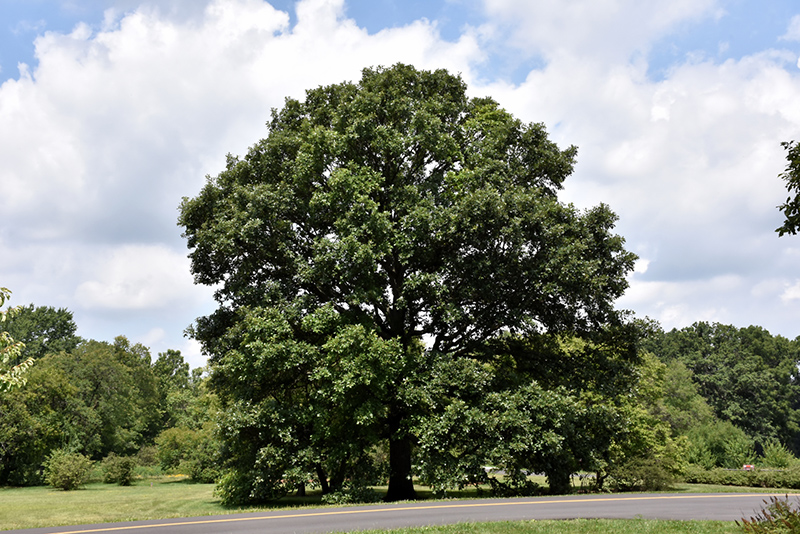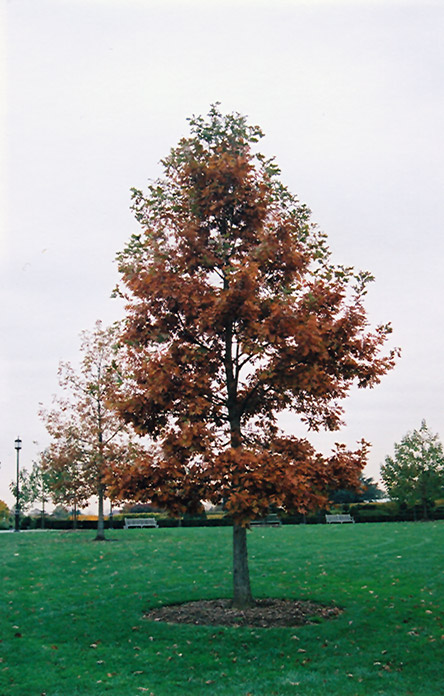Plant Search
Height: 70 feet
Spread: 70 feet
Sunlight:
![]()
Hardiness Zone: 3b
Description:
A large and imposing shade tree with an upright spreading habit of growth, best in larger landscapes and parks; extremely tough and adaptable to wet and adverse conditions; acorns are eaten by many birds and mammals
Growing Place Choice Plants
Our Growing Place Choice plants are chosen because they are strong performers year after year, staying attractive with less maintenance when planted in the right place.
Learn more about this promotion!
Ornamental Features
Swamp White Oak has dark green deciduous foliage which emerges grayish green in spring on a tree with a round habit of growth. The glossy lobed leaves turn coppery-bronze in fall. However, the fruit can be messy in the landscape and may require occasional clean-up.
Landscape Attributes
Swamp White Oak is a dense deciduous tree with a more or less rounded form. Its average texture blends into the landscape, but can be balanced by one or two finer or coarser trees or shrubs for an effective composition.
This tree will require occasional maintenance and upkeep, and is best pruned in late winter once the threat of extreme cold has passed. It is a good choice for attracting squirrels to your yard. It has no significant negative characteristics.
Swamp White Oak is recommended for the following landscape applications;
- Shade
Planting & Growing
Swamp White Oak will grow to be about 70 feet tall at maturity, with a spread of 70 feet. It has a high canopy with a typical clearance of 6 feet from the ground, and should not be planted underneath power lines. As it matures, the lower branches of this tree can be strategically removed to create a high enough canopy to support unobstructed human traffic underneath. It grows at a medium rate, and under ideal conditions can be expected to live to a ripe old age of 300 years or more; think of this as a heritage tree for future generations!
This tree should only be grown in full sunlight. It is an amazingly adaptable plant, tolerating both dry conditions and even some standing water. It is not particular as to soil type or pH. It is quite intolerant of urban pollution, therefore inner city or urban streetside plantings are best avoided. This species is native to parts of North America.
A NetPS Plant Finder tool



